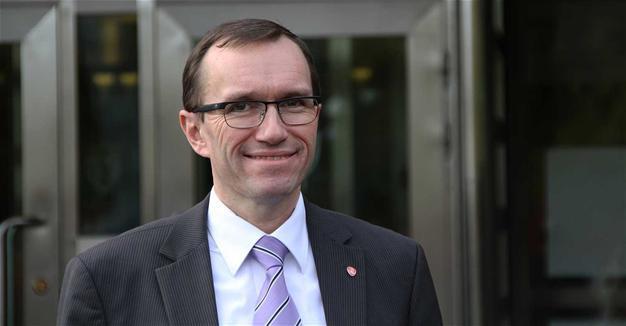Greek Cyprus president rebukes UN envoy for gas search comment

The president of Greek Cyprus rebuked a United Nations envoy on May 30 for speaking of a possible crisis over the divided island’s search for offshore oil and gas, calling the remark “unacceptable” and a “threat” amid faltering reunification talks.
The envoy, Espen Barth Eide, was quoted in Greek newspaper To Vima as expressing concern that growing tensions over the energy issue could derail the ongoing talks aiming at reunifying Cyprus as a federation.
President Nicos Anastasiades told reporters he already had let Eide know he didn’t appreciate his comments.
It’s the second time this month that Anastasiades, a Greek Cypriot, has criticized Eide and accused the envoy of bias.
“I regret that I’m being harsh about it, but I’ve made complaints directly that I consider such remarks unacceptable, especially if they’re made in the form of a threat,” Anastasiades said.
Turkey and Greek Cyprus are sharply divided over energy exploration. Turkey opposes what it calls a unilateral Greek Cypriot project that flouts the rights of the island’s Turkish Cypriots.
Turkey is also said to claim part of gas exploration areas, or blocks, off Cyprus’ western and southern coast, as its own.
In March, the Turkish Foreign Ministry warned that it would “take all necessary measures to protect its interests” in the eastern Mediterranean, as well as those of the Turkish Cypriots.
Meanwhile, the Greek Cypriot government says drilling is its sovereign right and that potential proceeds from any mineral wealth would be divvied up among all citizens once a peace deal is signed.
French energy company Total is scheduled to drill an exploratory well off Cyprus’ southern coast in mid-July.
Peace talks are at a standstill after Eide called off mediation efforts last week when Anastasiades and Turkish Cypriot leader Mustafa Akıncı failed to find common ground on the format for a final summit in Geneva, Switzerland.
 The president of Greek Cyprus rebuked a United Nations envoy on May 30 for speaking of a possible crisis over the divided island’s search for offshore oil and gas, calling the remark “unacceptable” and a “threat” amid faltering reunification talks.
The president of Greek Cyprus rebuked a United Nations envoy on May 30 for speaking of a possible crisis over the divided island’s search for offshore oil and gas, calling the remark “unacceptable” and a “threat” amid faltering reunification talks.